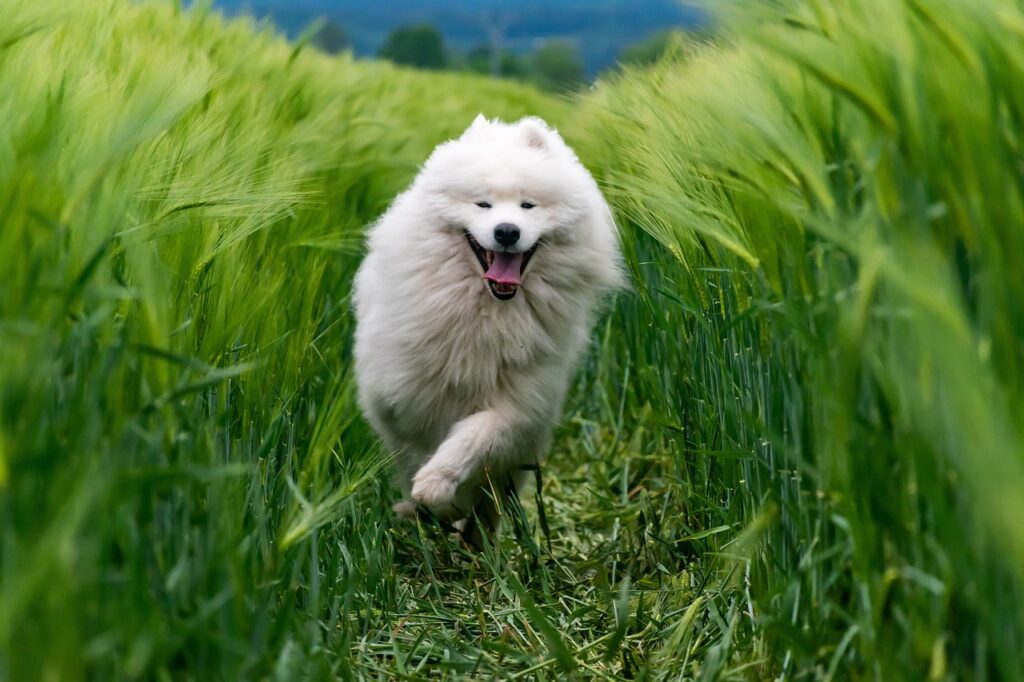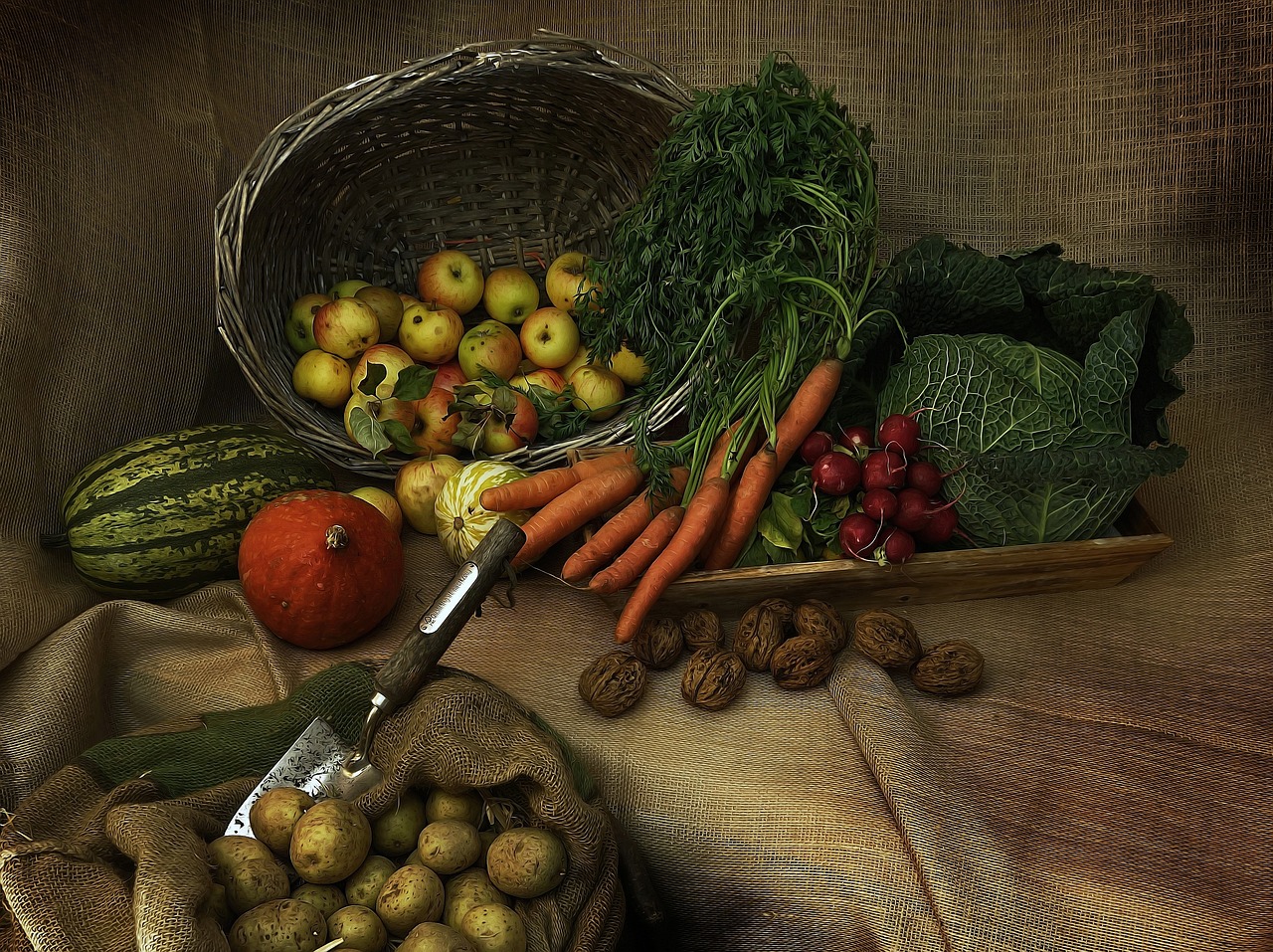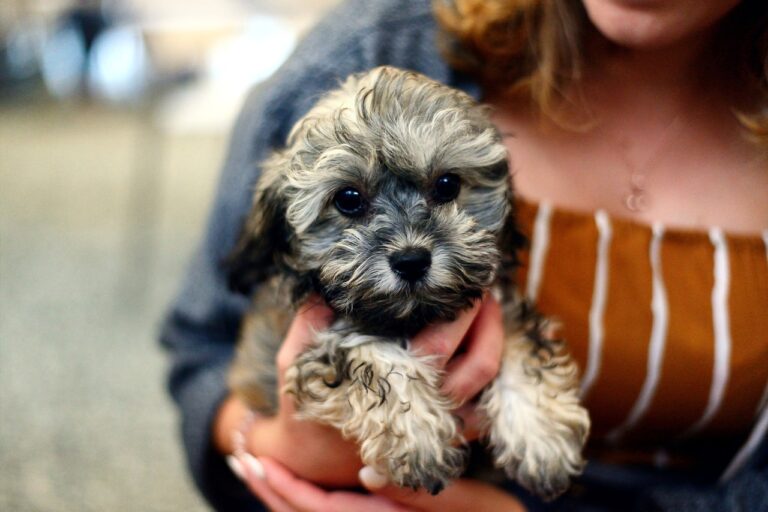9 Dog Nutrition Mistakes New Pet Owners Make
Ah, the joy of bringing home your first furry baby! The entire house is suddenly abuzz with excitement and anticipation, and you can’t stop fawning over the myriad antics of your little furball. Your picture gallery is suddenly filled with 100 snapshots and videos of your pet. Amid all this excitement, there is also an imposing sense of responsibility and a lurking fear of what if you mess up and somehow end up causing your beloved pet harm. Apart from training and grooming, the right nutrition tops the list of things new pet parents worry about. What if you’re inadvertently making some dog feeding mistakes that could have long-term impact on your pup’s health?
Are you overfeeding or underfeeding them? Is their diet meeting all their nutritional needs? What about micronutrients? What if your dog is a fussy eater? Or always seems hungry? And god forbid, they get an upset stomach! You can count on sleepless nights and frantic internet searches. Trust me, I know. Been through it all with my first. To make sure you don’t feel as lost or confused as I did in some of those moments, I’ve put together this list of common dog nutrition mistakes new pet owners make and why they must be avoided.
Table of Contents
Importance of Proper Dog Nutrition
Your canine companion doesn’t ask much of you, but good nutrition is one of the most basic needs you must be prepared to fulfill if you’re taking on the role of a pet parent. What you feed your dog determines their overall health, longevity, and quality of life. Your pet’s diet must comprise the right amounts of macronutrients, vitamins, and minerals; here’s why:
1. Optimal health and longevity
Dr. Jennifer Larsen, a board-certified veterinary nutritionist at the University of California, Davis, says, “Nutrition is the foundation of a dog’s health. An inadequate or unbalanced diet can lead to deficiencies and other long-term health problems.” A balanced diet tailored to a dog’s age, breed, size, and activity level is essential for their body to function efficiently.
2. Growth and development
One of the most common dog nutrition mistakes is not factoring in a dog’s age and growth into their diet. Puppies, for instance, require higher levels of protein, fat, and certain minerals like calcium and phosphorus to support rapid growth and bone development. A 2011 study in BMC Veterinary Research revealed that improperly balanced diets, particularly those lacking in essential nutrients, could lead to developmental orthopedic diseases (DOD) in growing dogs, especially large breeds.
On the other hand, adult and senior dogs have different nutritional requirements to maintain their health. Veterinary nutritionist Dr. Cailin Heinze emphasizes, “Feeding puppies adult dog food or food not designed for their growth stage can lead to severe health issues like skeletal abnormalities.”
3. Immune function
A well-balanced diet strengthens a dog’s immune system, enabling it to fight off infections and recover from illnesses faster. Antioxidants, such as vitamins E and C, are essential for reducing oxidative stress. Dr. Ernie Ward, founder of the Association for Pet Obesity Prevention, notes, “Optimal nutrition fuels the immune system, protecting dogs from environmental stressors and illnesses.” That’s why one of the most essential dog nutrition tips for beginners is not to overlook essential micronutrients when planning your pet’s diet.
4. Healthy weight
Obesity is a leading health problem in dogs, with nearly 60% of dogs in the U.S. classified as overweight or obese, according to the Association for Pet Obesity Prevention (2022). Dr. Alex German, a professor of small animal medicine, explains, “Obesity in dogs is not just a cosmetic issue—it has serious implications for their overall health and life expectancy.”
Proper portion control and balanced diets prevent weight gain and related issues such as diabetes, joint problems, and reduced lifespan. A 2002 study published in the Journal of the American Veterinary Medical Association (JAVMA) found that dogs fed a restricted-calorie diet lived almost two years longer than their counterparts on unrestricted diets. These dogs also showed delayed onset of chronic diseases like arthritis.

5. Cognitive and emotional well-being
Nutrition directly impacts brain function and mood in dogs. A 2015 study in Frontiers in Veterinary Science, for instance, found that dietary supplementation with Omega-3 fatty acids improved cognitive function in aging dogs. Likewise, amino acids like tryptophan are associated with the production of serotonin, a neurotransmitter linked to mood regulation. You see how well-rounded nutrition positively impacts every aspect of your pet’s health.
6. Prevents nutritional deficiencies
Imbalanced diets, whether commercial or homemade, can lead to deficiencies or excesses of essential nutrients, causing serious health problems. For instance, excessive calcium in large-breed puppies can lead to skeletal deformities, while vitamin D toxicity can cause kidney damage.
Lack of protein, on the other hand, can lead to muscle loss or developmental issues, lack of calcium and Vit D can lead to rickets in dogs, iron deficiency can cause anemia, and so on. Likewise, a diet composed of fillers can lead to issues like obesity and diabetes.
7. Skin and coat health
Dr. Andrea Fascetti of the University of California, Davis, says, “A dog’s coat and skin are often mirrors of their internal health, heavily influenced by their diet.” Essential fatty acids, such as Omega-6 and Omega-3, play a critical role in keeping your dog’s coat shiny and their skin healthy as well as weeding out issues like itching, redness, excessive shedding, and infections.

9 Dog Nutrition Mistakes New Pet Owners Make
Now that you have clarity on the role of a healthy diet and good nutrition on your pet’s well-being and longevity, you can see how even the most dog feeding mistakes can have long-term effects. Once the damage is done, you’re left with nothing but remorse and guilt eating you up from the inside. To make sure that doesn’t happen to you and your beloved furry baby, I’ve put together this guide on how to avoid dog feeding errors as a first-time owner. Here are the 9 most common mistakes you need to be wary of:
1. Feeding a diet inappropriate for the dog’s life stage
Dogs have different nutritional needs at various life stages. For example, puppies require more protein and calories to support growth and development whereas adult dogs can do well on a maintenance diet. Senior dogs, on the other hand, need diets tailored to manage aging-related issues like joint health.
Sticking to one diet through different life stages is one of most common new pet owner dog feeding errors that can have grievous consequences. Dr. Larsen explains, “Feeding a diet inappropriate for a dog’s life stage can result in nutrient imbalances and health problems that are avoidable with proper guidance.”
2. Overfeeding or free-feeding
One of the top mistakes to avoid when feeding your new dog is giving them more food than they need. This can happen because you overestimate how much food your dog needs and end up overfeeding them or if you give your pet access to food all day (free-feeding). Both these approaches to feeding your pet lead to overeating, and consequently, weight gain.
Dogs, especially puppies, aren’t always able to regulate their food intake. Meaning, your new pet may eat whatever food you offer them and be up for a second helping or a third. The onus of figuring out setting a puppy feeding schedule and tweaking it as per their changing requirements is on you. If you’re not clear on when or how much to feed your pet, talk to your vet or a canine nutritionist.
3. Feeding too many treats or table scraps
Another one of the common dog nutrition mistakes new pet owners make is feeding their canine companions table scraps or being too generous with treats. This can not only lead to unhealthy weight gain but can also put your dog at the risk of consuming foods that can be toxic for them, such as chocolates, grapes, raisins, and onions. Besides, excessive calories consumed through scraps or treats can lead to nutritional deficiencies in their main diet.
Dr. Lisa Freeman of Tufts University advises, “Treats should make up no more than 10% of a dog’s daily calorie intake to avoid overfeeding.” As a rule of thumb, never offer your pet anything from your plate/table, and limit the use of treats for training or rewarding positive behavior. This is one the most essential dog nutrition tips for beginners that will hold you in good stead in your entire journey as a pet parent.
4. Not transitioning diets gradually
As I have been saying, dogs need different diets at different stages of life. Apart from their nutritional needs, there can be other reasons to adjust or change a dog’s diet—finding more nutritionally dense meal options, allergies, or just wanting to make your pet’s diet more diverse.
While there is nothing wrong with changing your pet’s diet, the transition should not be abrupt. Suddenly stopping the food your dog has been on and offering them something new is one of the dog nutrition pitfalls to avoid as it can lead to gastrointestinal issues like diarrhea and vomiting.
Whether you’re mixing dry and wet dog food, switching from one brand of dog food to another, transitioning from homemade meal to packaged variants or vice versa, start my replacing 10% your dog’s existing food with the new one, altering the purporting by 10% each days, completing the transition over a period of 7-10 days.
5. Failing to understand portion sizes
Another mistake new pet parents tend to make is relying on estimates or guesswork for determining the portion size for their dog’s meals. This is problematic because overestimating portions can lead to obesity, while underestimating can result in malnutrition. Besides, it can compromise the nutritional profile of your dog’s food intake, leading to deficiencies or toxicity.
How can you avoid this? Consult your vet or a nutritionist to understand how much food you need to give your pet in each meal and in what proportions, and then measure it to make sure you’re meeting those recommendations. Many owners rely on guesswork for portion sizes rather than following guidelines or consulting a veterinarian. Dr. Alex German, an expert in pet nutrition, recommends, “Use a kitchen scale or measuring cup to ensure accurate portions and avoid overfeeding.”
6. Choosing the wrong type of dog food
Not all dog foods are created equal. Some low-quality commercial foods are packed with fillers and lack essential nutrients whereas certain others are designed specifically for special needs and may not work well for all dogs. For instance, grain-free diets are meant for dogs with gluten allergies and may not be beneficial to all dogs.
One of the top mistakes to avoid when feeding your new dog is choosing food based on marketing claims or fads propagated on social media. On how this can be avoided, veterinary nutritionist Dr. Lisa Weeth advises, “Select a food that meets AAFCO standards and is suitable for your dog’s breed, age, and health.”
7. Ignoring specific health needs
Dogs with pre-existing health issues such as allergies, obesity, or kidney disease may require special diets tailored to support their health and well-being while managing the effects of these conditions. Not factoring in a dog’s health in formulating their diet is one of the most common dog nutrition mistakes new pet owners make that must be avoided at all costs because this small oversight can exacerbate these health concerns and have long-term effects on their quality of life.
8. Feeding homemade diets that lack nutritional balance
While there is nothing wrong with feeding your dog home cooked meals, when you don’t pay attention to the nutritional composition of such a diet, you risk deficiencies. Veterinarian Dr. Cailin Heinze warns, “Homemade diets are often well-intentioned but poorly executed, leading to severe nutrient deficiencies or toxicities.” The best approach is to find nutritionally complete homemade food recipes in consultation with a veterinarian or a canine nutritionist.
9. Not providing fresh water
Hydration is a key aspect of well-rounded canine nutrition that is often overlooked by new or first-time pet parents. Inadequate water consumption leads to dehydration, which can trigger health issues like kidney problems in dogs. Veterinarian Dr. Karen Becker emphasizes, “Water is the most important nutrient for dogs, and ensuring access to clean, fresh water at all times is non-negotiable.”
How to Avoid Dog Feeding Errors as a First-time Owner
Although I have already touched upon ways to avoid these common dog nutrition mistakes, there are a few broad rules of thumb that can enable you to make informed choices about your pet’s health and nutrition. Here are some quick tips on how to avoid dog feeding errors as a first-time owner:
- Consult your vet: When you bring home a dog, schedule a vet visit promptly and seek their advice on diet selection, portion sizes, and special needs—along with any other questions you may have about your pet’s health, vaccinations, grooming, etc
- Read labels carefully: Some commercially prepared dog foods contain ingredients that can be harmful to your pet’s health. That’s why reading labels is crucial. You must also ensure the food meets AAFCO standards for a complete and balanced diet
- Monitor your pet’s weight: Your pet’s weight is a reflection of their diet. If your pet is in the right weight range, it means their diet is working well. On the other hand, if they’re over- or underweight, it’s a sign you need to adjust their food intake
- Be consistent: Stick to a feeding schedule and avoid overindulgence in treats or scraps
FAQs
- How much should I feed my dog?
The amount you should feed your dog depends on their age, weight, breed, activity level, and health. Checking the feeding guidelines on your dog food package can offer some clarity on this. Typically, dogs need 2–3% of their body weight in food daily, divided into two meals. For example, a 20-pound dog may require 1 to 1.5 cups of kibble per day, while a 50-pound dog might need 2.5 to 3 cups. Adjust portions based on activity level and consult your vet to tailor the diet.
- Can I feed my dog homemade meals?
Yes, you can feed your dog homemade meals. In fact, homemade diets can be a great option for dogs with allergies or specific health conditions. However, it’s essential to ensure they are nutritionally balanced. Dogs require specific proportions of protein, carbohydrates, fats, vitamins, and minerals, which can be challenging to achieve without professional guidance. Work with a veterinarian or a veterinary nutritionist to create recipes tailored to your dog’s age, size, and health needs.
- Is it safe to give my dog supplements?
Excessive or unnecessary supplementation can lead to imbalances and toxicity. Give your dog supplements only if they’ve been recommended by a vet and in the prescribed quantity.
Takeaway
Proper dog nutrition isn’t just about putting food in their bowl twice a day. It’s about nurturing your dog’s health and long-term well-being. By addressing these common pitfalls, pet owners can ensure their dogs receive the nutrition they need for a long and healthy life. I hope this beginner dog nutrition guide helps you do that. However, before I wrap up, here’s a word of caution: when it comes to your pet’s nutrition and diet, it’s best not to wing it, especially as a novice or first-time parent. Consult a vet or an expert in the field to understand what your pet needs and create a tailored diet plan accordingly.







